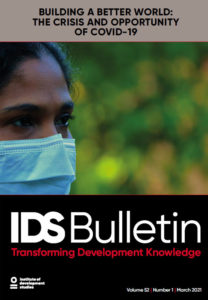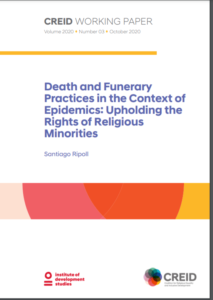Religious minority affiliation or status can play a very important role in influencing people’s access to vaccines as well as their willingness to undergo vaccination. Many studies focus on class, ethnicity and geographic location when examining how social inequalities impact vaccination programmes. However, religious marginality is often overlooked. Here we explore how being situated on the margins, on account of religious affiliation, shapes experiences of vaccine access and uptake. The issues addressed are important for Covid-19 vaccination roll out, but also contain lessons for all vaccination programmes and many other preventative health measures.
In this brief, we:
- Present key considerations for addressing differentials in access to and willingness to undergo vaccinations that are linked to religious minority status, experiences, authorities or doctrine;
- Explain why the study and awareness of religious marginality is crucial for the success of vaccination programmes broadly and specifically as they apply to Covid-19 vaccination;
- Explore ways in which religious marginality intersects with other identity markers to influence individual and community access to vaccines;
- Examine vaccine hesitancy in relation to religious minorities and outline approaches to community health engagement that are socio-religiously sensitive, as well as practical, to enhance vaccination confidence.
In view of both the paucity of scholarly literature on religious marginality, in particular in its nexus with other forms of marginality, this brief is informed by academic sources and grey literature as well as an examination of the content of online webinars, conferences and lectures on both minorities and religion and COVID-19. It is part of the Social Science in Humanitarian Action Platform (SSHAP) series on social science considerations relating to COVID-19 vaccines.
See also…
Vaccine scepticism among religious minorities: Pakistan must adopt a bottom-up approach (analysis)
IDPs in Iraq reluctant to receive Covid-19 vaccines (case study)




